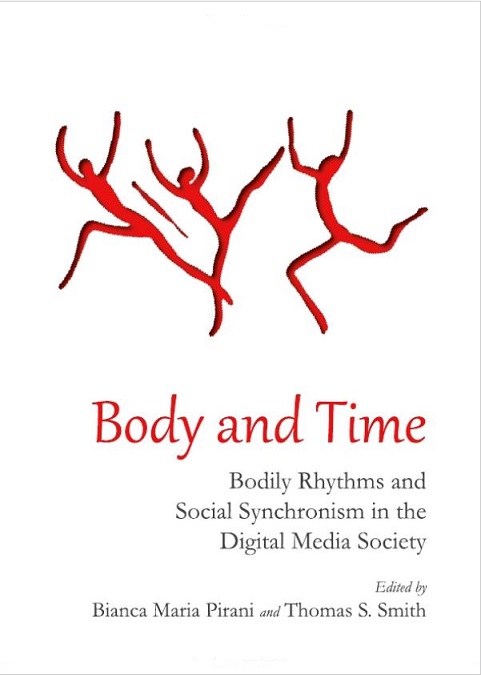B. M. Pirani & T. S. Smith (ed.), Body and Time : Bodily Rhythms and Social Synchronism in the Digital Media Society, Cambridge, Cambridge Scholars Publishing, 2013, 295 p.
- Body and Time is an innovative and concise survey of penetrating essays, conceptualizing the body as a physiological system embedded in a social network. In its complex and multilayered structure, it is aligned to and overlaps with other related functions. Contributors to this publication are members of the International Sociological Association Research Committee 54 The Body in the Social Sciences , and their contributions specifically refer to the RC54 Mid-Term Conference The Mobile Interface and Social Change , held at Sapienza , University of Rome, 6 December, 2012. What distinguishes the architecture of the book is that, collectively, it constitutes a challenge to the digital media paradigm in which the body is treated simply as a two dimensional icon of space and time ; a relatively free form with all kinds of narratives generated by the multimedia. Order in sequence should, indeed, be the key phrase incorporating four incisive problems dealt with in the thirteen chapters forming the body of the book : identity, temporality, hierarchy and territoriality. In short, the volume demonstrates how fundamentally different ways of experiencing time are also determined by the differing cultural use of bodily rhythms a two-sided narration namely, of space and time. Central to the understanding of this interdependence is the study of interpersonal synchronization increasing knowledge through the investigation of how rhythm, music, chants, dance, prayer and other harmonizing practices support social integration. This book will attract wide interest, especially from students, researchers and academics in the social sciences, neurosociology, digital studies and further afield.
- Bianca Maria Pirani is Professor of Sociology of Cultural Networks at the Department of Social Sciences, Faculty of Political Sciences, Communication, and Sociology, at Sapienza University of Rome.

